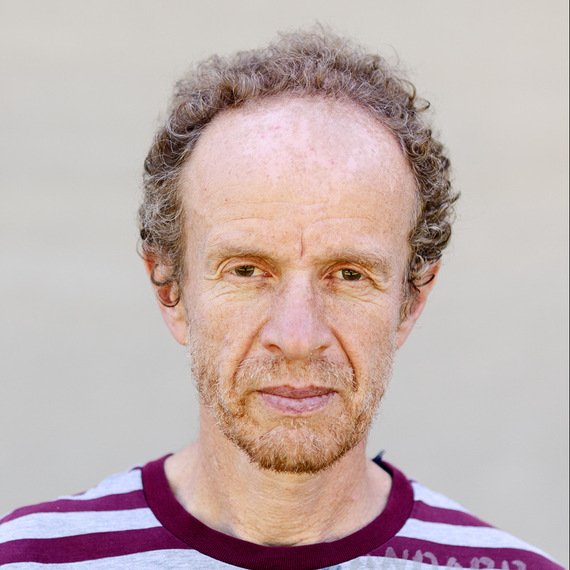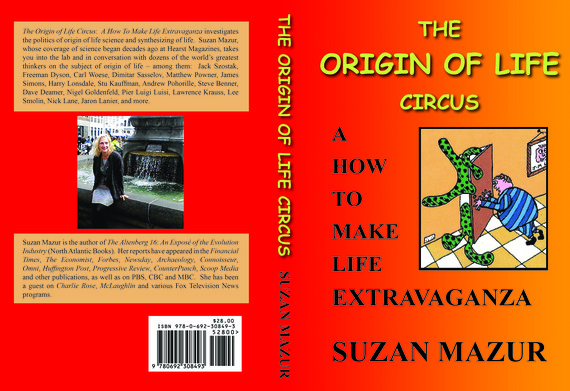Eugene Koonin is director of the Evolutionary Genomics Group at the National Center for Biotechnology Information in Bethesda, Maryland, as well as its senior investigator. He is also senior investigator at the National Library of Medicine and National Institutes of Health.
Koonin specializes in comparative genetics. Among his research interests are the origin and evolution of viruses, horizontal gene transfer, and the general principles of evolution.
He is the author of The Logic of Chance: The Nature and Origin of Biological Evolution (FT Press); and author or co-author of 600 scientific papers.
Highlights of our recent conversation about evolution paradigm shift and his above interests follow.
Suzan Mazur: What are the dangers to human health and life on the planet if the power structure continues to refuse to recognize that an evolution paradigm shift has been happening or has happened?
Eugene Koonin:
I would speak more about regrettably missed opportunities and investments in not so fruitful directions rather than danger... [S]erious medicine, mainstream medicine these days indeed, I think, over-appreciates the directness of the link between the genome and phenotypes and under-appreciates the emergent properties of the phenotype.
[T]he entire ideology of personalized medicine should be taken with many grains of salt. It's not useless, it's useful to sequence thousands of genomes. It's useful to sequence everyone's genome. It's useful and desirable -- yet, it's wrong and to some degree dangerous to think that, by peering into the sequence of the A, G, T, and Cs in your genome, your family doctor is going to tell you how to treat all your conditions and what conditions you are going to develop, and which ones you are not going to develop, and so on.
Many people in the public think so, quite a few doctors think something like that, although a lesser fraction than the general public. This view is a waste and gets to the point of being ridiculous.
Suzan Mazur: Do you view origin of life as a separate event from evolution?
Eugene Koonin:
[I]f we assume that the origin of life depended on the emergence of the replication of information, that's some sort of beginning.
There should have been something before that point that does not deserve to be called life. One can have different ideas on that account...
Suzan Mazur: You've said you think faint signals remain in tracing early ancestry. Carl Woese told me that these things are simply being inferred, that there's no way to know...
Eugene Koonin:
Indeed, if you want to be rigorous in a way, there is nothing we can know about the past. Everything we're saying about the past is inference -- yet, inference is not a derogatory term. We are very confident about much of this inference.
We are confident that all animals had a common ancestor about 700 million years ago, a little less. Although, do we know that? No. And no one ever is going to find that ancestor and experiment on that ancestor. In that sense, we do not know that. Do we have doubts? No. Reasonable evolutionary biologists have no doubts about that.
Then we go further into the past. The level of confidence drops. Yet, I would say responsibly, that there are quite a few things that we can infer with confidence about the Last Universal Common Ancestor of all existing cells. That's pretty deep.
Then, there are things that we can infer with reasonable confidence about some of the things that clearly happened before that Last Universal Common Ancestor of all modern cells existed by comparing those genes that were already present in the Last Universal Common Ancestor.
Is it lost somewhere? Absolutely. Of course. The question is, we discussed that boundary between pre-life and life. And that boundary is the emergence of replication of information carriers, such as nucleic acids. So the question is, do we lose all traceability of evolution at that boundary or later? If we lose the trace at that boundary, there is nothing to be done about it. We have done what we can by comparing and analyzing components of modern living things.
If, on the other hand, there was a period of time when replication already existed but we can make no inferences about that -- that's a bit of a different matter. Then it's worth trying more, trying harder...
Suzan Mazur: I'd like to touch on lateral transfer of information in microbial evolution and the growing interest in the influence of microbial evolution in human and animal evolution...
Eugene Koonin:
Yes, of course, microbiota is found not only in humans but in all multicellular organisms, which only exist as symbiotic communities with the microbiota, their respective microbiomes. By the way, the microbiomes themselves to some extent are transmitted vertically, but only to some extent...
Suzan Mazur: Do you see viruses as alive? For instance, the way they insert themselves into animal cells. This sounds like an active process. That they're trying to sustain themselves by entering the cell.
Eugene Koonin: By every account, viruses are organisms. They are active agents. They have their own evolution.
Suzan Mazur: But all of these things we've been discussing have been pretty much left out of the Modern Synthesis.
Eugene Koonin:
This is a good point to make. The entire evolution of the microbial world and the virus world, and the interaction between microbes and viruses and other life forms have been left out of the Modern Synthesis...
So indeed, the new understanding of evolution needs to integrate what we now know about viruses and virus-host interactions which, from my own perspective, has been absolutely one of the key factors of all evolution since the emergence of cells -- well, actually even before the emergence of cells.


